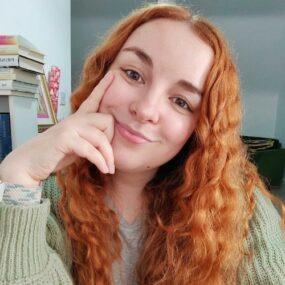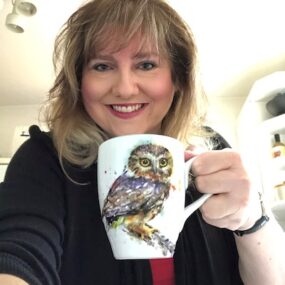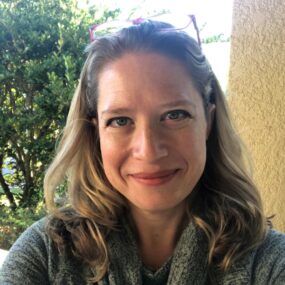Member Spotlight: Mary Mihaly

How did you land your first book ghostwriting project?
My first ghostwriting assignment was local, and I expected to hate it. In the early 2000s, the Cleveland Clinic (I’m in Cleveland) launched the Cleveland Clinic Press, publishing books authored by its doctors and other healthcare professionals. The community of working writers here was much smaller then, and word spread fast.
The editor turned out to be a woman who’d been editor of a local arts magazine, and I’d written a monthly travel column for her—which doesn’t sound like a big deal, but it got me to 60+ countries, all on someone else’s dime. I was able to choose from half a dozen medical topics that hadn’t been spoken for, and I chose to write their book about liver disorders, published in 2008.
People think I’m nuts, but I love the liver. It works hard for us, and I loved working on that book. It took me more than a year to write—the editor forgot to include a deadline in my contract, so I just worked on it sporadically—and the writers were only paid $10,000 per book. But writing a book for a prestige outfit opened the door to more health-related ghostwriting.
What has been your secret to building a steady stream of ghostwriting clients?
Oh, you want my secret to “building a steady stream of ghostwriting clients.” I’d love to read that one myself. The truth is, I’ve rarely had more than two ghostwriting clients at the same time—okay, once I had three—and I supplement my ghostwriting with a lot of other editorial work. I copyedit for a major travel website that pays well, I write about wine travel for a small magazine, I edit copy for a couple of quarterly alumni magazines, and I get out there. Most of my past and current clients know I ghostwrite, and they know I’m always feathering that nest.
Last summer, I sold some pretty shelving on Facebook Marketplace, and the nurse who bought it hired me to write some self-care pieces under her name. I ran into a former boss (from 1981!!!) at a yard sale, and she handed me off to a former Congresswoman who needed some micro-memoirs edited. I subscribe to Sonia’s newsletter and find good work there from time to time. I get many referrals from colleagues, and try to refer work, too. I put myself out there all I can, and like most writers, more pitches fall through than succeed—but the more connections I make, the more work I have. It’s no secret.
What do you wish you’d known about ghostwriting when you were first starting out?
What I wish I’d known about ghostwriting when I first started out, is that it’s no harder than any other kind of writing. This sounds like heresy, but I’ve never given a thought to writing in a client’s own “voice”—I just write as well as I can, trying to keep readers reading, in what I suppose is my own voice. No client has ever objected because I make them sound great. Two or three decades ago, I think the thought of ghostwriting intimidated me because I thought it required more than good research and interviewing and writing, which I had always done. I do wish I’d known that back in the day.
Only once did a client’s “voice” get in the way, and he was the sweetest fellow—a retired doctor in Virginia who had proven, successful treatments for multiple sclerosis. But his evidence was all anecdotal, and he was no longer working with a research center or hospital. The problem with his voice was, when he spoke, he sounded like a chemistry book-on-tape. I spent three days with him, and had to constantly ask him to start over and pretend he was explaining this to his 6-year-old grandson. Somehow, we got through his book; reading it now, I still can barely understand the thing.
How would you describe your favorite type of project and client?
My favorite type of project is one where I have no learning curve. I’ve written hundreds of articles and a slew of books on health, so I love doing health books. I would love to ghostwrite some books on wine or spirits—I have multiple certifications in those areas—but so far, all I’ve snagged is an editing gig for my former wine teacher, who’s writing a textbook. I’m working on my own wine book proposal.
My favorite type of client is one who trusts that I’ll meet their expectations—and respects our relationship enough to meet mine.
What are the best parts of this career?
The best part of a ghostwriting career, to be honest, is the bigger check. I’d much rather write something for $35,000 or $40,000 than the pennies magazines pay today. How I yearn for the $2-a-word markets again! And with those bigger checks comes more autonomy; I love having more work in front of me, more time alone to do it in, and less pitching and hustling.
I also love getting to know someone deeply. I’m currently ghostwriting a memoir for a man who’s (mostly) recovered from a mental illness (a referral from a fellow AOG member, thank you again and hurray), and he is a smart, sensitive man who has made difficult decisions, done some humiliating things, and is laying it all out there for people to read. Telling people’s stories with this level of detail moves me and makes me want to do a good job for them.
How can people reach you?
Anyone can reach me at mary@marymihaly.com. I check email many times a day.











